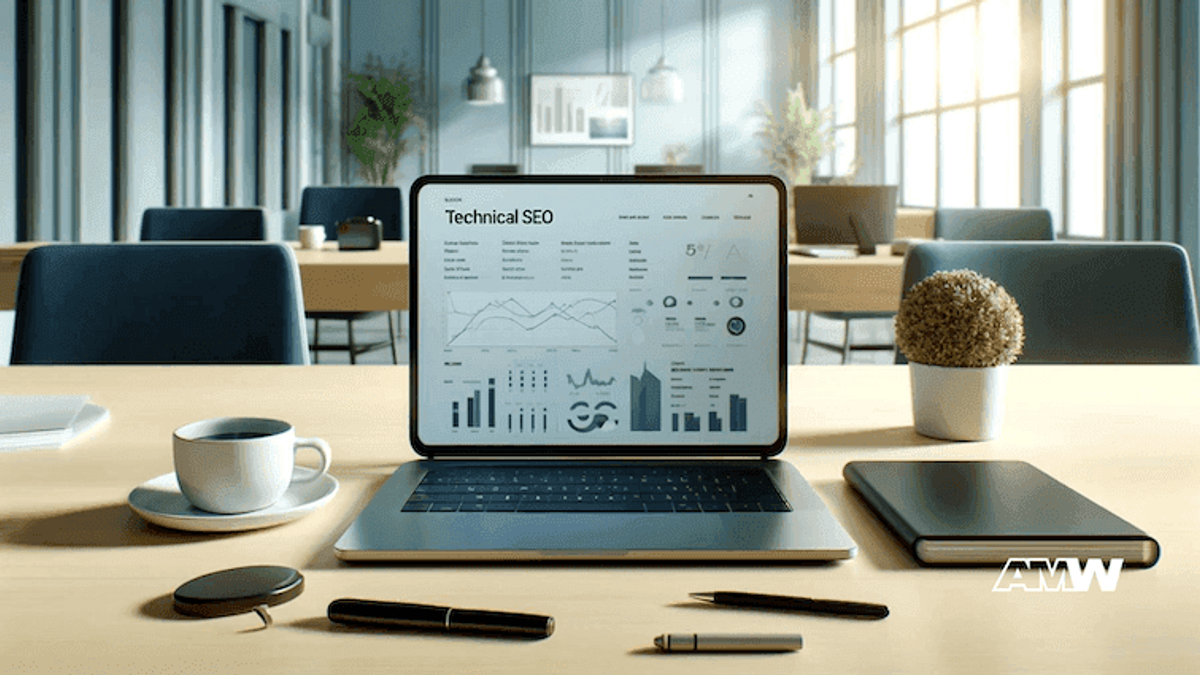Expert SEO Tips for Higher Rankings in Search Results

SEO is the backbone of online visibility. It ensures that your site appears in search when customers look for relevant keywords.
Quick Summary
Effective SEO is vital for improving online visibility and driving organic traffic. Understanding keyword research is crucial, as it allows content optimization that aligns with user intent. Implementing best practices like optimizing title tags, using clear meta descriptions, and ensuring mobile-friendliness enhances performance. Regularly checking core web vitals and building quality backlinks ensures a robust SEO strategy, ultimately boosting rankings in Google and attracting more visitors to
Without effective SEO, even the most well-designed website can remain virtually invisible to search engines and users alike.
This blog provides expert SEO tips to help you reach higher rankings in search results.
Ready to Grow Your Business?
Get a custom strategy tailored to your goals.
Understanding and implementing these strategies can enhance your site's visibility, drive more traffic, and grow your business.
Understanding SEO Fundamentals

Definition of SEO (Search Engine Optimization)
Search Engine Optimization (SEO) refers to optimizing web-pages to rank higher in search, and involves different techniques to improve a website's visibility for search queries related to its Content.
Importance of SEO for Online Visibility and Traffic
SEO is crucial for online visibility and traffic. When your site ranks higher in Google search results or other search engines, it attracts more organic traffic.
This means users find your website naturally through search engines rather than paid advertisements. Effective SEO can lead to increased website visitors, more potential customers, and greater domain authority.
Brief Mention of the Evolving Nature of SEO Algorithms
SEO is continually evolving, with search engines frequently updating their algorithms. These updates can impact how search engines discover and rank web pages.
Staying informed about this is essential for maintaining and improving your rankings.
For instance, Google's core web vitals report has become a significant ranking factor, emphasizing the importance of page speed and user experience.
Keywords Integration

Understanding search engine optimization (SEO) fundamentals is one of the most essential SEO tips. It helps engines read your Content, making it easier for them to rank higher.
A good SEO strategy involves conducting thorough keyword research to identify target and related keywords that potential customers are searching for.
Improving title tags, meta descriptions, and image alt text are powerful SEO tips that can enhance your website's ranking power.
By writing title tags and meta descriptions that include your main keyword, you can improve your chances of appearing in Google's search results.
Internal linking and using external links wisely are also crucial. Internal links help engines find more of your Content and spread ranking power across your website. External links to high-quality backlinks from reputable sites can boost your authority.
High-quality Content is critical to retaining website visitors and achieving a featured snippet position in search results.
Incorporating long-tail keywords and understanding search intent can help you create relevant information that meets users' needs.
Utilizing SEO tools like Google Search Console and conducting a site audit tool can provide valuable insights into your website's performance. Regularly checking your core web vitals report and making necessary improvements can enhance UX and boost your rankings.
SEO is not a one-time effort but a longer process. Regularly updating your blog content, optimizing for new relevant keywords, and staying informed about SEO trends are important to maintain and improve your rankings.
This can help you achieve your website goals, and grow your business.
Keyword Research and Optimization

Importance of Keyword Research
KW research is the basis of any effective SEO strategy. Identifying the right target keywords is essential for driving organic traffic to your website.
By comprehending what your potential customers are searching for, you can design content that fits them and rank higher in search engine results.
Conducting thorough KW research allows you to discover relevant keywords with high search volume but are relatively competitive.
These keywords help search to understand the focus of your Content, making it more likely to appear in Google search results and attract website visitors.
Tools for Effective Keyword Research
To perform adequate keyword research, you need to use the right tools. Some of the most popular and powerful SEO tools include:
- Google Keyword Planner
- Ahrefs
- SEMrush
- Moz Keyword Explorer
Tips for Optimizing Content with Target Keywords
When you have found your KW, the next step is to improve your Content effectively.
Here are some essential SEO tips for optimizing your Content with target keywords:
- Put Keywords in Title Tags and Meta Descriptions:Ensure that your main keyword appears in your web page's title tag and meta description. This makes engines comprehend your content's focus and improves your search result ranking.
Put Keywords in Title Tags and Meta Descriptions: Ensure that your main keyword appears in your web page's title tag and meta description. This makes engines comprehend your content's focus and improves your search result ranking.
- Use Keywords Naturally in Your Content:Incorporate your target keywords naturally throughout your blog posts or web pages. Avoid excessive keyword usage, as it can negatively impact your SEO. Instead, concentrate on creating top-notch content that delivers pertinent information to your audience.
Use Keywords Naturally in Your Content: Incorporate your target keywords naturally throughout your blog posts or web pages. Avoid excessive keyword usage, as it can negatively impact your SEO. Instead, concentrate on creating top-notch content that delivers pertinent information to your audience.
- Optimize Headings and Subheadings:Use your target keywords in headings and subheadings to make search discover your Content's structure and main topics. This also enhances the readability of your Content for website visitors.
Optimize Headings and Subheadings: Use your target keywords in headings and subheadings to make search discover your Content's structure and main topics. This also enhances the readability of your Content for website visitors.
- Long Tail Keywords:Long-tail keywords are specific phrases that users search for. They often have lower competition and higher conversion rates. Including this in your Content can help you rank for niche search queries.
Long Tail Keywords: Long-tail keywords are specific phrases that users search for. They often have lower competition and higher conversion rates. Including this in your Content can help you rank for niche search queries.
- Optimize Images with Alt Text:Adding descriptive alt text to your images that includes relevant keywords can improve your SEO. This helps search engines understand your pictures and can drive additional traffic from image search results.
Optimize Images with Alt Text: Adding descriptive alt text to your images that includes relevant keywords can improve your SEO. This helps search engines understand your pictures and can drive additional traffic from image search results.
- Internal and External Links:Use internal linking to connect related pages on your website, helping search engines understand the relationship between your Content. External links to high-quality backlinks can also enhance your Content's credibility and authority.
Internal and External Links: Use internal linking to connect related pages on your website, helping search engines understand the relationship between your Content. External links to high-quality backlinks can also enhance your Content's credibility and authority.
- Focus on Search Intent:Understanding search intent is crucial for optimizing your Content. Ensure that it aligns with what users seek when they enter specific search queries. This increases the likelihood of your Content being deemed relevant by search engines.
Focus on Search Intent: Understanding search intent is crucial for optimizing your Content. Ensure that it aligns with what users seek when they enter specific search queries. This increases the likelihood of your Content being deemed relevant by search engines.
- Monitor and Adjust:Use tools like Google Search Console and a site audit tool to monitor your SEO performance. Analyze your core web vitals report and make adjustments to improve your rankings and get more organic traffic.
Monitor and Adjust: Use tools like Google Search Console and a site audit tool to monitor your SEO performance. Analyze your core web vitals report and make adjustments to improve your rankings and get more organic traffic.
By following these SEO tips and optimizing your Content with target keywords, you can enhance your site's visibility in results, attract more organic traffic, and achieve higher rankings in Google search and other search engines.
On-Page SEO Techniques

Best Practices for On-Page SEO
Implementing on-page SEO techniques is crucial for improving your website's visibility in search engine results.
By optimizing individual web pages, you can enhance their relevance and ranking power for specific search queries.
Here are some best practices for on-page SEO that can help you rank higher in Google's search results and attract more organic traffic.
Title Tags
These are one of the most important elements of on-page SEO. They are the clickable headlines in search engine results and significantly influence your click-through rate (CTR).
When writing title tags, ensure they are descriptive, include your target keyword, and are between 50-60 characters to avoid truncation in search results.
For example, if your main keyword is "SEO tips," a well-crafted title tag might be "Top SEO Tips for Higher Rankings in 2024.
Meta Descriptions
Meta descriptions briefly summarize your page's Content and appear below the title tag in search. A compelling description can improve your CTR and drive more traffic to your site.
Include relevant keywords and keep the description between 150 and 160 characters.
Header Tags (H1, H2, H3)
Header tags (H1, H2, H3 and more) organize your text and make it better for viewers and engines to comprehend its structure.
The H1 tag should have your main keyword and clearly state the page's main topic. Subsequent headers (H2, H3) should break down the Content into logical sections, incorporating related keywords where appropriate.
This improves readability and enhances SEO by signaling the importance of different content sections to search engines.
URL Structure
A clean and informative URL structure can improve your SEO efforts and user experience. URLs should be short, include relevant keywords, and indicate the page's Content.
For example, a URL like "www.example.com/seo-tips" is more effective than "www.example.com/page12345."
Well-structured URLs help search engines discover and index your Content efficiently, improving your chances of appearing in search results.
Image Optimization (Alt Text)
Improving images is a crucial aspect of on-page SEO. Use high-quality images and include descriptive alt text that incorporates relevant keywords. Alt text helps search understand the pictures, which can tweak your visibility in image search results and enhance overall SEO.
Additionally, optimized images contribute to better user experience and accessibility.
Additional On-Page SEO Tips
- Internal Links:Use internal links to bridge related pages on your site. This helps search engines discover more of your Content and distribute ranking power throughout your site.
Internal Links: Use internal links to bridge related pages on your site. This helps search engines discover more of your Content and distribute ranking power throughout your site.
- External Links Wisely:Include external links to high-quality backlinks from reputable sites. This can boost your site's credibility and domain authority.
External Links Wisely: Include external links to high-quality backlinks from reputable sites. This can boost your site's credibility and domain authority.
- High-Quality Content:Focus on creating quality Content that provides relevant information and meets your users' search intent. Content that addresses users' needs is more likely to rank higher and attract organic traffic.
High-Quality Content: Focus on creating quality Content that provides relevant information and meets your users' search intent. Content that addresses users' needs is more likely to rank higher and attract organic traffic.
- Core Web Vitals:Monitor your core web vitals report using tools like Google Search Console. Ensuring your site meets performance standards for loading, interactivity, and visual stability can improve your rankings and user experience.
Core Web Vitals: Monitor your core web vitals report using tools like Google Search Console. Ensuring your site meets performance standards for loading, interactivity, and visual stability can improve your rankings and user experience.
- Featured Snippets:Aim to provide answers to common questions to refine your chances of being featured in snippets, which can drive significant traffic.
Featured Snippets: Aim to provide answers to common questions to refine your chances of being featured in snippets, which can drive significant traffic.
By implementing these on-page SEO techniques, website owners can improve their SEO strategy, enhance the visibility of their pages in search results, and drive more organic traffic.
These powerful SEO tips are essential for achieving higher Google rankings and sustaining their online presence.
Quality Content Creation

Importance of High-Quality, Relevant Content
Creating quality, relevant Content is one of the most essential SEO tips for achieving higher rankings in search engine results.
Search engines prioritize information that provides value and meets users' search intent.
Quality Content improves your chances of ranking in Google search results, attracts more organic traffic, and keeps website visitors engaged.
Strategies for Creating Engaging and Valuable Content
To create Content that ranks well, consider the following strategies:
- Understand Your Audience:Conduct thorough keyword research to identify the target keywords your potential customers are searching for. This enables you to develop compelling content catering to their needs and interests.
Understand Your Audience: Conduct thorough keyword research to identify the target keywords your potential customers are searching for. This enables you to develop compelling content catering to their needs and interests.
- Focus on Search Intent:Ensure your Content aligns with the search intent behind your targeted queries. Whether users are looking for information, purchasing, or seeking a solution to a problem, your Content should provide relevant information that meets their expectations.
Ready to Grow Your Business?
Get a custom strategy tailored to your goals.
Focus on Search Intent: Ensure your Content aligns with the search intent behind your targeted queries. Whether users are looking for information, purchasing, or seeking a solution to a problem, your Content should provide relevant information that meets their expectations.
- Craft Compelling Headlines:Your headlines and title tags should be attention-grabbing and include your primary keyword. This helps engines to understand your Content and entices viewers to click on your link in search results.
Craft Compelling Headlines: Your headlines and title tags should be attention-grabbing and include your primary keyword. This helps engines to understand your Content and entices viewers to click on your link in search results.
- Provide Comprehensive Information:High-quality Content should be in-depth and cover the topic thoroughly. Addressing all aspects of a subject satisfies user intent and signals that your Content is a valuable resource.
Provide Comprehensive Information: High-quality Content should be in-depth and cover the topic thoroughly. Addressing all aspects of a subject satisfies user intent and signals that your Content is a valuable resource.
- Use Clear and Concise Language:Write straightforwardly and professionally. Do not use jargon and ensure your Content is easily readable and understandable.
Use Clear and Concise Language: Write straightforwardly and professionally. Do not use jargon and ensure your Content is easily readable and understandable.
Role of Content-Length and Depth in SEO
Content length and depth play a significant role in SEO. Long-form content has the potential to achieve better performance in search results due to its ability to comprehensively delve into a topic, offering readers greater value through in-depth coverage.
However, quality should never be sacrificed for quantity. Create captivating, relevant, and informative content.
For example, blog posts that thoroughly address a topic using long-tail keywords can rank higher and attract more organic traffic.
Incorporating Multimedia (Images, Videos) for Enhanced User Experience
Adding multimedia like photos and videos can enhance UX and boost your SEO efforts. High-quality photos and videos make your Content more engaging and help explain complex topics more effectively.
- Images:Optimize your images using relevant keywords in the file names and alt text.
Images: Optimize your images using relevant keywords in the file names and alt text.
- Videos:Embedding videos on your page can increase user engagement and decrease bounce rates. Videos can also rank independently in search results, providing another avenue for driving traffic to your site.
Videos: Embedding videos on your page can increase user engagement and decrease bounce rates. Videos can also rank independently in search results, providing another avenue for driving traffic to your site.
- Internal and External Links: Internal links can steer users to other relevant pages, improving their experience and helping search engines discover more of your Content. External links to high-quality backlinks from authoritative sites can enhance your Content's credibility and ranking power.
By following these strategies, website owners can rank well and provide value to their audience. High-quality Content, combined with other SEO efforts such as on-page SEO and link building, forms the foundation of a successful SEO strategy, driving more organic traffic and improving overall site performance.
Technical SEO

Overview of Technical SEO Elements
Technical SEO involves optimizing your website's infrastructure to help search engines discover, crawl, and index your pages more effectively.
Addressing technical SEO elements can improve your site's performance. Here are some of the critical aspects of technical SEO:
Site Speed Optimization
Site speed is a factor in SEO. Faster loading times enhance user experience and positively impact your rankings in Google's search results. Use tools like Google Search Console and site audit tools to identify and fix issues that are slowing down your site.
Optimizing images, leveraging browser caching, and using a content delivery network (CDN) are effective strategies to improve site speed.
Mobile-Friendliness
As more users access sites on mobile devices, it's crucial for SEO to ensure that websites are mobile-friendly.
Therefore, it's important to have a responsive website that offers an optimal viewing experience across different devices. Use Google Search Console to check your site's mobile usability and address any issues.
Secure Sockets Layer (SSL) Implementation
Implementing SSL to secure your website is essential for SEO and user trust. Remember that having HTTPS and SSL certificates is important for search engine rankings.
SSL helps encrypt data transmitted between the user's browser and your server, making the browsing experience more secure. It should have a valid SSL certificate and use HTTPS for all pages.
Sitemap and Robots.txt Configuration
A well-organized sitemap is crucial for ensuring that search engines efficiently find and index your content. Your sitemap should include all relevant pages you want search engines to index. Add your sitemap to Google Search Console.
Configure your robots.txt file to help search engines to which pages to crawl and index. This ensures that search engines prioritize the most important pages of your site.
Core Web Vitals
Core Web Vitals are metrics that assess your site's loading performance, interactivity, and visual stability.
These metrics are part of Google's ranking factors, emphasizing the importance of user experience.
Regularly monitor your core web vitals report using tools like Google Search Console and make necessary improvements to ensure your site meets performance standards.
Additional Technical SEO Tips
- Internal Linking:Utilize internal links to build a cohesive site structure and enable search engines to comprehend the hierarchy of your content. This also improves user navigation.
Internal Linking: Utilize internal links to build a cohesive site structure and enable search engines to comprehend the hierarchy of your content. This also improves user navigation.
- High-Quality Backlinks:Acquiring high-quality backlinks from reputable sites can boost your domain authority and enhance your SEO efforts.
High-Quality Backlinks: Acquiring high-quality backlinks from reputable sites can boost your domain authority and enhance your SEO efforts.
- Meta Descriptions and Title Tags:Ensure each page has a unique and descriptive meta description and title tag. This improves click-through rates.
Meta Descriptions and Title Tags: Ensure each page has a unique and descriptive meta description and title tag. This improves click-through rates.
- Indexed Pages:Regularly check which pages are indexed by search engines. Ensure that only relevant pages are indexed to maintain a focused SEO strategy.
Indexed Pages: Regularly check which pages are indexed by search engines. Ensure that only relevant pages are indexed to maintain a focused SEO strategy.
- URL Structure:Use a clean, descriptive URL structure with relevant keywords.
URL Structure: Use a clean, descriptive URL structure with relevant keywords.
Addressing these technical SEO elements can help website owners create a solid foundation for their SEO strategy.
Implementing these critical SEO tips will help improve site performance, enhance user experience, and increase visibility in search engine results, ultimately driving more organic traffic to your site.
Link Building Strategies

Importance of Backlinks for SEO
Backlinks play a crucial role in a successful SEO strategy. They serve as endorsements from other websites, indicating to engines that your content is valuable and reliable.
Quality backlinks can greatly enhance your domain authority, leading to better rankings for your web pages in search engine results.
In essence, backlinks are a decisive factor in enhancing your site's credibility and visibility in Google's search results and other search engines.
Effective Link Building Techniques
To increase the impact of your SEO efforts, it's essential to employ effective link-building techniques. Here are some proven strategies to help you acquire quality backlinks and improve your search engine optimization SEO:
Guest Posting
Guest posting involves writing articles for other reputable websites in your industry. This approach not only assists in expanding your reach to a bigger audience but also enables you to incorporate backlinks to your website, thereby enhancing its visibility and authority.
Ensure that your guest posts provide high-quality Content and relevant information to readers, as this will increase the likelihood of other sites accepting your submissions and linking back to your Content.
Broken Link Building
Broken link building is a proactive strategy where you search for non-functional links on other sites and then reach out to the site owners to suggest your relevant and valuable content as a replacement for those broken links.
This approach is highly effective because it not only helps website owners maintain the quality of their content by fixing broken links but also provides you with an opportunity to earn a high-quality backlink in return. Use SEO tools to identify broken links on relevant web pages and reach out to the site owners with your Content as a suitable replacement.
Outreach and Networking
Establishing connections with fellow website owners, bloggers, and influencers in your field can open the door to valuable opportunities for building links. Engage in networking through social media, industry events, and online communities.
When you establish a connection, you can pitch your Content for potential backlinks or collaborate on mutually beneficial projects.
Avoiding Black Hat SEO Tactics
While the temptation to quickly boost rankings with black hat SEO tactics might be substantial, it is crucial to avoid these methods. Black hat tactics, such as buying links, using link farms, or engaging in reciprocal link schemes, can lead to penalties from search engines.
These practices can damage your site's reputation and result in lower rankings or removal from search engine results. Always focus on ethical, white-hat link-building strategies that provide long-term benefits and sustainable growth.
Additional Link-Building Tips
- Internal and External Links:Incorporate internal links on your pages and external links to reputable sources. This makes search discover more of your Content and enhances the credibility of your web pages.
Internal and External Links: Incorporate internal links on your pages and external links to reputable sources. This makes search discover more of your Content and enhances the credibility of your web pages.
- Relevant Keywords:Use relevant KW in your anchor text to provide context to search about the Content of your target page. This can improve the relevance and ranking power of your backlinks.
Relevant Keywords: Use relevant KW in your anchor text to provide context to search about the Content of your target page. This can improve the relevance and ranking power of your backlinks.
- High-Quality Content: One of the most effective link-building strategies is creating high-qualityContent that others naturally want to link to. Content that offers unique insights, in-depth research, or comprehensive guides is more likely to attract high-quality backlinks.
High-Quality Content: One of the most effective link-building strategies is creating high-quality Content that others naturally want to link to. Content that offers unique insights, in-depth research, or comprehensive guides is more likely to attract high-quality backlinks.
- Site Audit Tool:Make sure to use a site audit tool regularly to pinpoint opportunities for enhancing your link-building strategy. This can help you uncover broken links, unlinked mentions, and other potential link-building prospects.
Site Audit Tool: Make sure to use a site audit tool regularly to pinpoint opportunities for enhancing your link-building strategy. This can help you uncover broken links, unlinked mentions, and other potential link-building prospects.
- Featured Snippets:Try to create Content that can be featured in snippets, as these often attract backlinks from other sites referencing your authoritative Content.
Ready to Grow Your Business?
Get a custom strategy tailored to your goals.
Featured Snippets: Try to create Content that can be featured in snippets, as these often attract backlinks from other sites referencing your authoritative Content.
These link-building strategies can enhance your SEO efforts and improve your website's visibility in search engine results. Effective link building helps you rank higher and drives more organic traffic to your site, contributing to your overall SEO success.
User Experience (UX) and SEO

Connection Between UX and SEO
User experience (UX) and SEO are intricately linked, with the quality of UX being a significant factor in search engine optimization. Search engines, including Google, prioritize websites that provide a positive user experience. When users find a site that is easy to navigate and engaging, they are likely to stay longer, interact more, and return, which sends positive signals to search engines.
Consequently, enhancing UX is one of the most essential SEO tips for improving your site's ranking.
Improving Site Navigation and Structure
A well-structured website with intuitive navigation helps users and search engines discover your Content more effectively. Here are some SEO tips for improving your site's navigation and structure:
- Straightforward Menu and Layout:Ensure your site has a clear, logical menu structure that allows users to find information quickly. A well-organized menu helps search engines understand the hierarchy and importance of different pages.
Straightforward Menu and Layout: Ensure your site has a clear, logical menu structure that allows users to find information quickly. A well-organized menu helps search engines understand the hierarchy and importance of different pages.
- Internal Links:Use internal links strategically to connect related pages. This helps website visitors navigate your site and helps search discover and index your Content, enhancing the overall SEO strategy.
Internal Links: Use internal links strategically to connect related pages. This helps website visitors navigate your site and helps search discover and index your Content, enhancing the overall SEO strategy.
- Breadcrumbs:Implement breadcrumbs to show users their location within its structure. This improves navigation and provides additional internal links to help search engines understand your site's architecture.
Breadcrumbs: Implement breadcrumbs to show users their location within its structure. This improves navigation and provides additional internal links to help search engines understand your site's architecture.
- Consistent URL Structure:Maintain a consistent and descriptive URL structure with relevant keywords. This helps search understand the Content of your pages and enhances user experience.
Consistent URL Structure: Maintain a consistent and descriptive URL structure with relevant keywords. This helps search understand the Content of your pages and enhances user experience.
Reducing Bounce Rates and Enhancing Dwell Time
Reducing bounce rates and increasing dwell time are critical for improving your search engine rankings. High bounce rates and short dwell times indicate to search engines that users need to find your Content relevant or engaging. Here are some strategies to address these issues:
- High-Quality Content:Create high-quality Content that meets your audience's search intent. Use keyword research to identify the target keywords and topics your viewers are searching for. Relevant, informative, and engaging Content will keep users on your site longer.
High-Quality Content: Create high-quality Content that meets your audience's search intent. Use keyword research to identify the target keywords and topics your viewers are searching for. Relevant, informative, and engaging Content will keep users on your site longer.
- Page Load Speed:Optimize your site's load speed using tools like Google Search Console and a site audit tool. Faster loading improve user experience and can lead to lower bounce rates. Address issues identified in the core web vitals report to enhance site performance.
Page Load Speed: Optimize your site's load speed using tools like Google Search Console and a site audit tool. Faster loading improve user experience and can lead to lower bounce rates. Address issues identified in the core web vitals report to enhance site performance.
- Mobile Optimization:Ensure your site is mobile-friendly. With most search queries now coming from mobile devices, a responsive design is crucial. Use Google's mobile-friendly test to check your site's mobile usability.
Mobile Optimization: Ensure your site is mobile-friendly. With most search queries now coming from mobile devices, a responsive design is crucial. Use Google's mobile-friendly test to check your site's mobile usability.
- Multimedia Content:Incorporate high-quality photos, videos, and other multimedia to make your Content more engaging. Use image alt text to help engines understand the Content of your pictures and improve accessibility.
Multimedia Content: Incorporate high-quality photos, videos, and other multimedia to make your Content more engaging. Use image alt text to help engines understand the Content of your pictures and improve accessibility.
- Clear Calls to Action (CTAs):Use clear and compelling CTAs to guide users through your site. Whether signing up for a newsletter, downloading a resource, or making a purchase, effective CTAs can enhance user engagement and reduce bounce rates.
Clear Calls to Action (CTAs): Use clear and compelling CTAs to guide users through your site. Whether signing up for a newsletter, downloading a resource, or making a purchase, effective CTAs can enhance user engagement and reduce bounce rates.
- Readable and Scannable Text:Break up your text with headers, bullet points, and short paragraphs. This makes your Content easier to read and understand, improving user engagement and dwell time.
Readable and Scannable Text: Break up your text with headers, bullet points, and short paragraphs. This makes your Content easier to read and understand, improving user engagement and dwell time.
By focusing on these aspects of UX, website owners can create a more enjoyable and practical browsing experience for their users. Improved UX helps retain website visitors and sends positive signals, enhancing your SEO efforts and helping your site rank higher in search results.
Implementing these SEO tips can significantly improve user experience and optimization, improving overall performance in Google's and other search engines' search results.
Leveraging Analytics and Tools

Monitoring and analyzing your SEO performance is essential for understanding your SEO strategy and making data-driven decisions to improve it.
By regularly tracking key SEO metrics, you can identify areas that need improvement, understand the impact of your SEO efforts, and adjust your strategies to achieve better results.
Effective use of analytics helps you stay ahead of your organic search competitors and continuously refine your approach to rank higher in search engine results.
Tools for Tracking SEO Metrics
Several powerful SEO tools can help you monitor and analyze your SEO performance. Here are some of the most essential SEO tips for leveraging these tools effectively:
- Google Analytics:Google Analytics is for tracking your website's traffic and user behavior. It provides insights into the traffic-sources, the performance of your web pages, and the actions users take on your site. By analyzing this data, you can understand how well your SEO strategy is working and identify opportunities for improvement.
Google Analytics: Google Analytics is for tracking your website's traffic and user behavior. It provides insights into the traffic-sources, the performance of your web pages, and the actions users take on your site. By analyzing this data, you can understand how well your SEO strategy is working and identify opportunities for improvement.
- Google Search Console:Google Search Console is crucial for monitoring how your site performs in Google search results. It provides data on search queries, click-through rates, and indexing status. The core web vitals report in Google Search Console helps you find and fix issues related to site speed and user experience, which are essential ranking factors.
Google Search Console: Google Search Console is crucial for monitoring how your site performs in Google search results. It provides data on search queries, click-through rates, and indexing status. The core web vitals report in Google Search Console helps you find and fix issues related to site speed and user experience, which are essential ranking factors.
Using Data to Refine SEO Strategies
Once you have the data from these SEO tools, the next step is to use it to refine and improve your SEO strategies. Here are some critical steps to take:
- Identify and Fix Technical Issues:Use site audit tools to identify technical SEO issues, such as broken links, duplicate Content, and slow page load times. Addressing these issues can improve your site's crawlability and user experience, leading to better rankings in search engine results.
Identify and Fix Technical Issues: Use site audit tools to identify technical SEO issues, such as broken links, duplicate Content, and slow page load times. Addressing these issues can improve your site's crawlability and user experience, leading to better rankings in search engine results.
- Analyze User Behavior:Use Google Analytics to understand how users interact with your site. To gauge user engagement, look at metrics like bounce rate, dwell time, and pages per session. High bounce rates or low dwell times may indicate that your Content is not meeting search intent, prompting a need for content improvement.
Analyze User Behavior: Use Google Analytics to understand how users interact with your site. To gauge user engagement, look at metrics like bounce rate, dwell time, and pages per session. High bounce rates or low dwell times may indicate that your Content is not meeting search intent, prompting a need for content improvement.
- Keyword Performance:Track your keywords using tools like SEMrush and Ahrefs. Find which keywords drive the most traffic and which need more optimization. Tweak your keyword strategy based on search volume, competition, and relevance.
Keyword Performance: Track your keywords using tools like SEMrush and Ahrefs. Find which keywords drive the most traffic and which need more optimization. Tweak your keyword strategy based on search volume, competition, and relevance.
- Optimize Content Based on Insights:Use the data from Google Search Console to see which search queries are bringing users to your site. Optimize your Content to better align with these queries, ensuring your meta descriptions, title tags, and on-page Content are relevant and compelling.
Optimize Content Based on Insights: Use the data from Google Search Console to see which search queries are bringing users to your site. Optimize your Content to better align with these queries, ensuring your meta descriptions, title tags, and on-page Content are relevant and compelling.
- Enhance Backlink Profile:Analyze your backlink profile using Ahrefs or Moz. Focus on getting backlinks from authoritative websites, which can significantly boost your domain authority and ranking power. Avoid black hat SEO tactics and engage in ethical link-building practices like guest posting and broken link-building.
Enhance Backlink Profile: Analyze your backlink profile using Ahrefs or Moz. Focus on getting backlinks from authoritative websites, which can significantly boost your domain authority and ranking power. Avoid black hat SEO tactics and engage in ethical link-building practices like guest posting and broken link-building.
- Continuous Improvement:SEO is an ongoing process. Review your analytics data regularly, adjust your strategies based on performance insights, and stay updated with the latest SEO trends and algorithm changes. Continuously refining your SEO efforts will help you maintain and improve your rankings.
Continuous Improvement: SEO is an ongoing process. Review your analytics data regularly, adjust your strategies based on performance insights, and stay updated with the latest SEO trends and algorithm changes. Continuously refining your SEO efforts will help you maintain and improve your rankings.
By effectively leveraging analytics and tools, website owners can gain insights into their completion and make informed decisions to enhance their strategies.
These powerful SEO tips will help you optimize your site, drive more organic traffic, and achieve higher rankings in Google's search results and other search engines.
Conclusion

In conclusion, these expert SEO tips can significantly revamp your search rankings and drive more organic traffic to your website. By focusing on quality content creation, on-page optimization, technical SEO, link building, and leveraging analytics, you can enhance your site's visibility in search engine results and stay ahead of your competitors.
Use these strategies to align your SEO efforts with search intent and continuously adapt to search engine optimization. Start implementing these tips today to see your website rank higher in Google's search results and attract more visitors.
FAQ

What are the top 5 SEO strategies?
Focus on quality content, effective keyword research, on-page optimization, technical SEO, and link building. These strategies helps in understanding your Content, improve user experience, and increase your site's authority, ultimately leading to higher rankings in search results.
How can I make my SEO successful?
Consistently create valuable Content, optimize your website for search engines, build high-quality backlinks, and use analytics to monitor performance and make adjustments. Utilizing tools like Google Search Console and regularly conducting site audits can help refine your SEO strategy and achieve better results.
What is a good example of SEO?
A good example of SEO is a well-optimized blog post that ranks high in search results for relevant keywords, has a fast load time, is mobile-friendly, and receives natural backlinks from other reputable websites.
This combination of factors ensures a positive user experience and effectively meets search intent.
What are some good SEO practices?
Good SEO practices include using descriptive title tags, creating high-quality Content, optimizing images with alt text, ensuring fast load times, and securing your site with SSL.
Additionally, focusing on internal linking and providing a clear site structure can help search engines discover and index your Content more efficiently.
How to do SEO for beginners?
Beginners should start with keyword research to identify relevant keywords. They should then optimize their website's on-page elements, such as title tags, meta descriptions, and header tags. They should create high-quality Content that addresses search queries and provides value.
They should build backlinks from reputable sites and regularly monitor their site's performance using tools like Google Analytics to make necessary adjustments.
How to make SEO effective?
To make SEO effective, create user-friendly, valuable Content that addresses search intent. Tweak the technical aspects of your site, including site speed and mobile-friendliness. Build quality backlinks to increase domain authority. Stay informed about the latest SEO and updates to adapt to constant changes in search engine algorithms.
By following these powerful SEO tips, you can create a robust SEO strategy that helps you rank in search engine results, attract more organic traffic, and achieve sustained growth for your website.

Ready to Grow Your Business?
Get a custom strategy tailored to your goals.
Frequently Asked Questions
How long does it take to see SEO results for higher search rankings?
SEO results typically take 3-6 months to become visible, though some improvements may appear within 4-8 weeks. The timeline depends on factors like website age, competition level, content quality, and technical optimization. New websites generally take longer than established sites. Consistent implementation of SEO strategies including keyword optimization, quality content creation, and link building is essential for sustainable ranking improvements over time.
What are the most important on-page SEO factors for higher rankings?
Critical on-page SEO factors include optimized title tags with target keywords, compelling meta descriptions, proper heading structure (H1, H2, H3), fast page loading speed, mobile responsiveness, and high-quality content that matches search intent. Additionally, internal linking, image alt text optimization, and clean URL structure significantly impact rankings. Focus on creating content that provides genuine value while naturally incorporating relevant keywords throughout.
How do I choose the right keywords for better search engine rankings?
Start with keyword research tools like Google Keyword Planner, Ahrefs, or SEMrush to identify relevant terms your audience searches for. Focus on long-tail keywords with moderate search volume and lower competition. Analyze search intent behind keywords and ensure they align with your content goals. Consider your website's authority level - newer sites should target less competitive keywords initially before pursuing high-competition terms.
What technical SEO issues can hurt my search rankings?
Common technical SEO problems include slow page loading speeds, mobile unfriendliness, broken internal links, duplicate content, missing meta tags, and poor site architecture. Core Web Vitals issues like poor Largest Contentful Paint (LCP) and Cumulative Layout Shift (CLS) negatively impact rankings. Use Google Search Console and site audit tools to identify technical issues. Regular monitoring and fixing these problems is crucial for maintaining search visibility.
How often should I update my content for better SEO performance?
Update existing content every 6-12 months to maintain relevance and rankings. Focus on refreshing outdated information, adding new insights, updating statistics, and improving keyword optimization. Publish new blog content consistently - aim for at least 1-2 quality posts per week if possible. Google favors fresh, updated content that provides current value to users. Regular content updates signal to search engines that your website is active and authoritative.
What role do backlinks play in achieving higher search rankings?
Backlinks from reputable websites act as votes of confidence, significantly boosting your site's authority and search rankings. Quality matters more than quantity - focus on earning links from relevant, high-authority sites in your industry. Effective link-building strategies include creating valuable content, guest posting, digital PR, and building relationships with industry influencers. Avoid purchasing low-quality links, as they can result in search engine penalties.
How can I optimize for featured snippets to improve search visibility?
Target long-tail question keywords and structure content to directly answer specific queries. Use clear headings, numbered lists, bullet points, and concise paragraphs. Include definitions, step-by-step instructions, and comparison tables. Optimize content length to 40-60 words for paragraph snippets. Research existing featured snippets in your niche and create more comprehensive, better-formatted answers. Focus on providing immediate value that satisfies user search intent completely.
Related Resources
Calculators
Pricing Guides
Key Terms
Optimization of individual web page elements including content, HTML source code, and meta tags to rank higher in search results.
Keyword DifficultyA metric estimating how hard it would be to rank on the first page of search results for a specific keyword.
Content DecayThe gradual decline in organic traffic and rankings that content experiences over time as it becomes outdated or outranked.
Brand SalienceThe degree to which your brand comes to mind quickly and easily when customers think about your product category.
Answer Engine OptimizationOptimizing content for AI answer engines and conversational search interfaces.
Related Articles

Increase Your Website Traffic with Small Business SEO Services
A good online presence is important to small business success. One of the best ways to get more visibility and traffic to your site is through SEO. SEO is about optimizing your online presence...

Mastering SEO Content Development: The Ultimate Guide to Higher Rankings
SEO content development is vital for businesses aiming for online visibility. It merges compelling content creation with search engine optimization, focusing on keyword research, user intent, and...

Onsite SEO vs Offsite SEO: Strategies for Optimization
Planning an effective search engine optimization strategy often involves a well-balanced approach to both onsite and offsite SEO. Each element can contribute significantly to improving search engine r